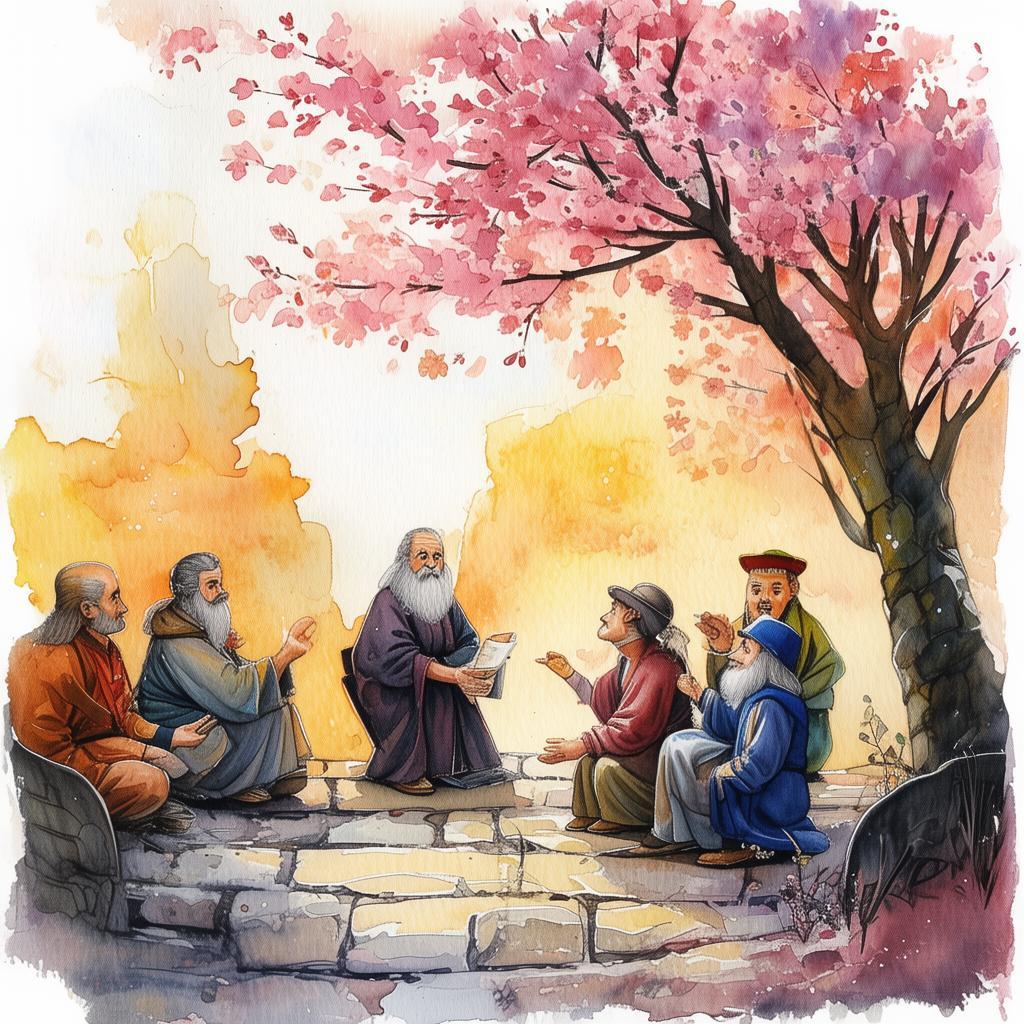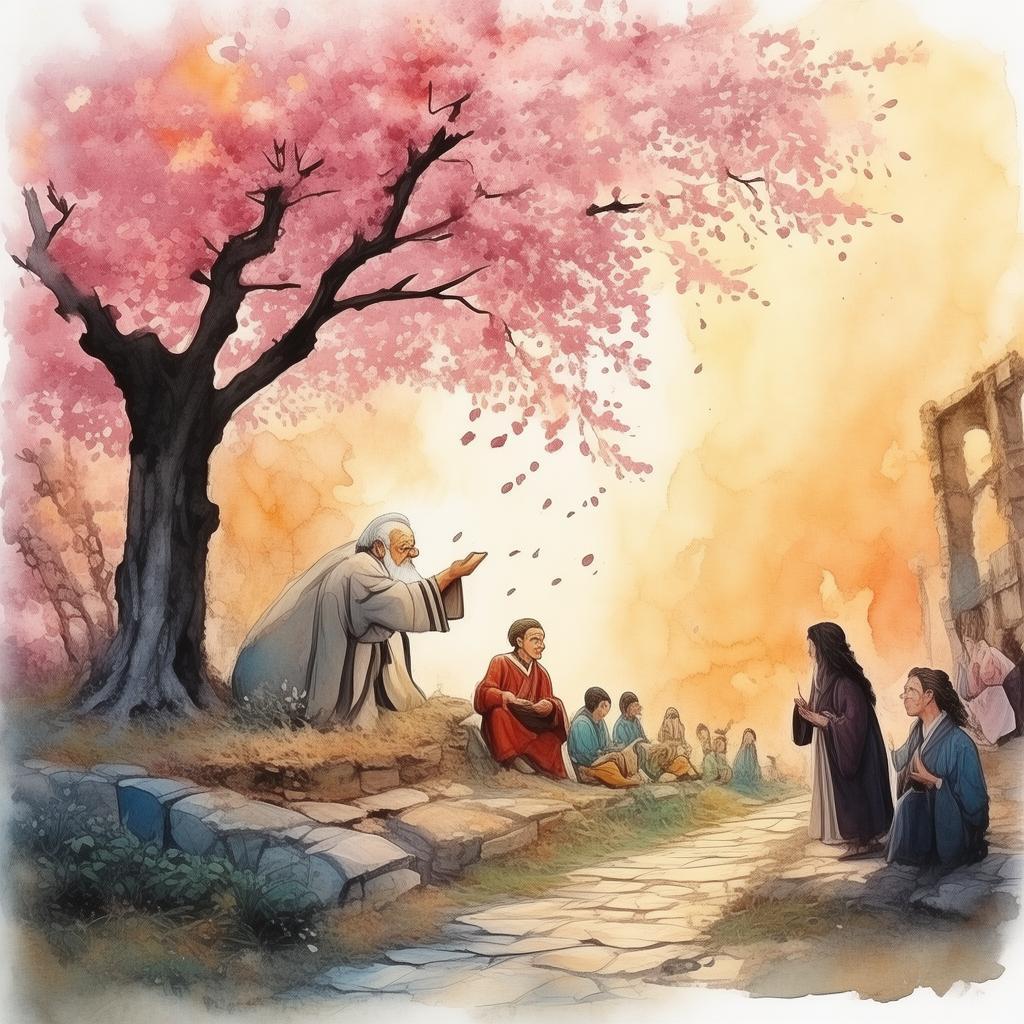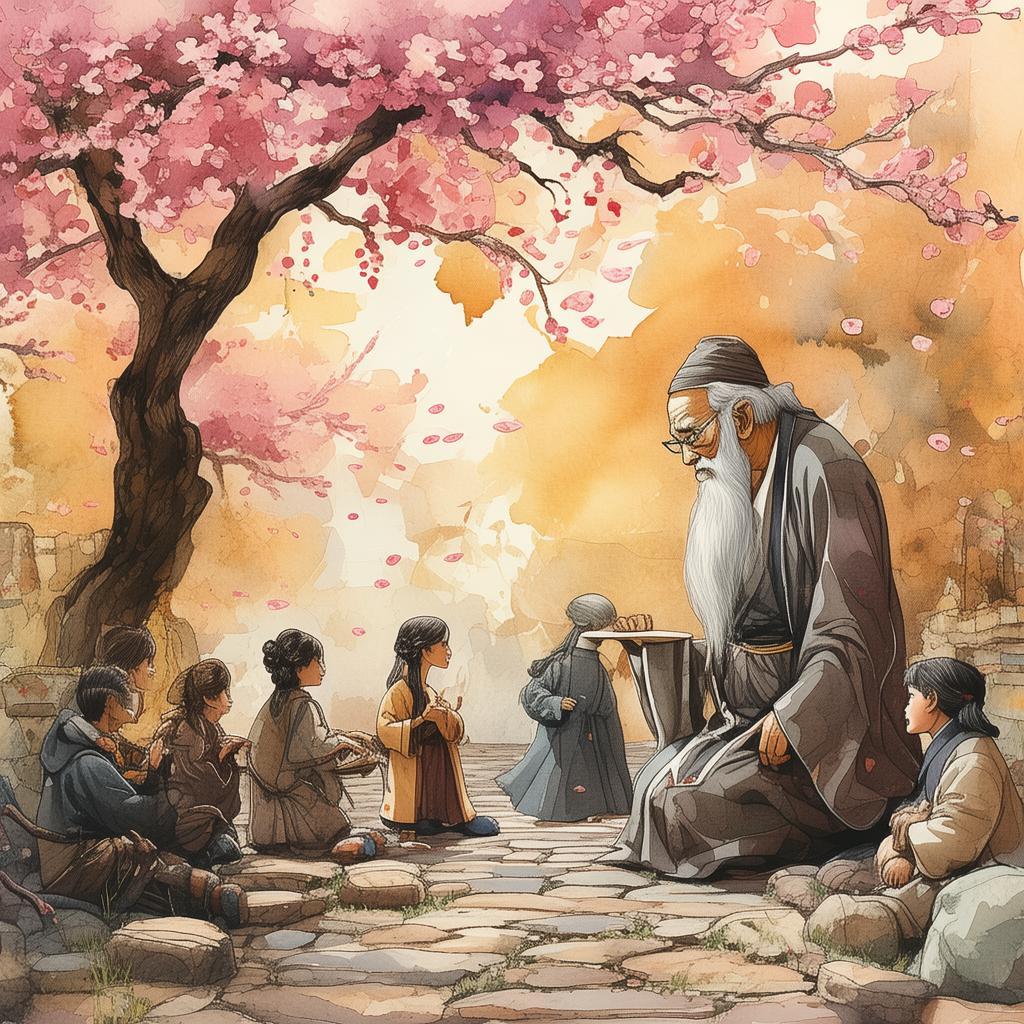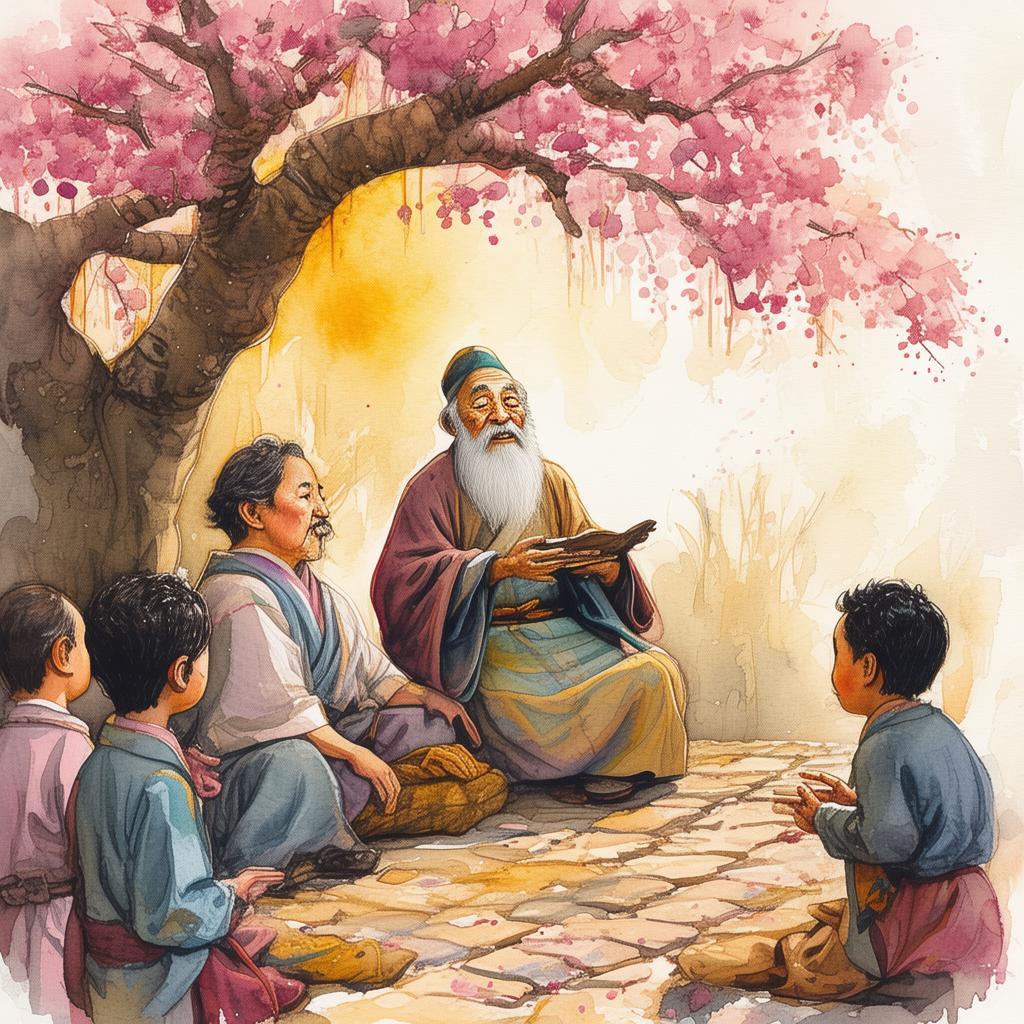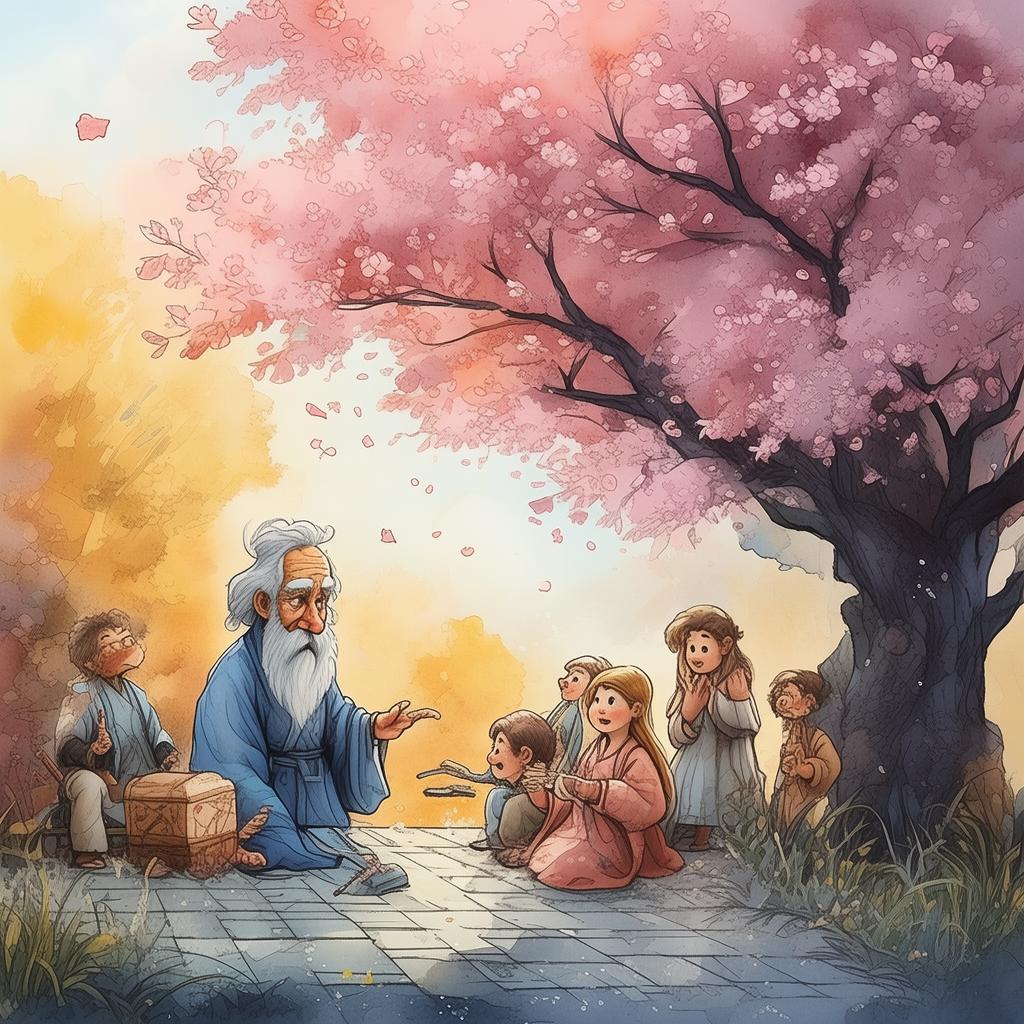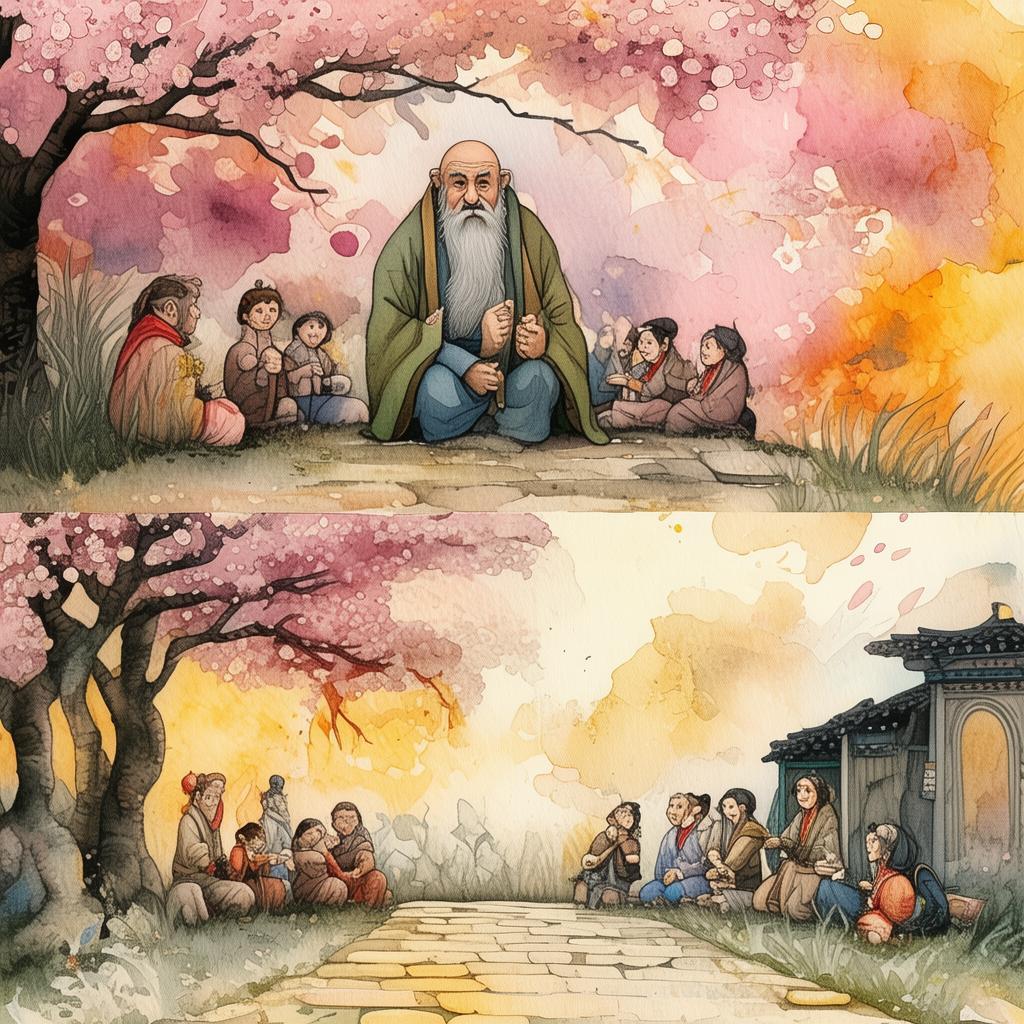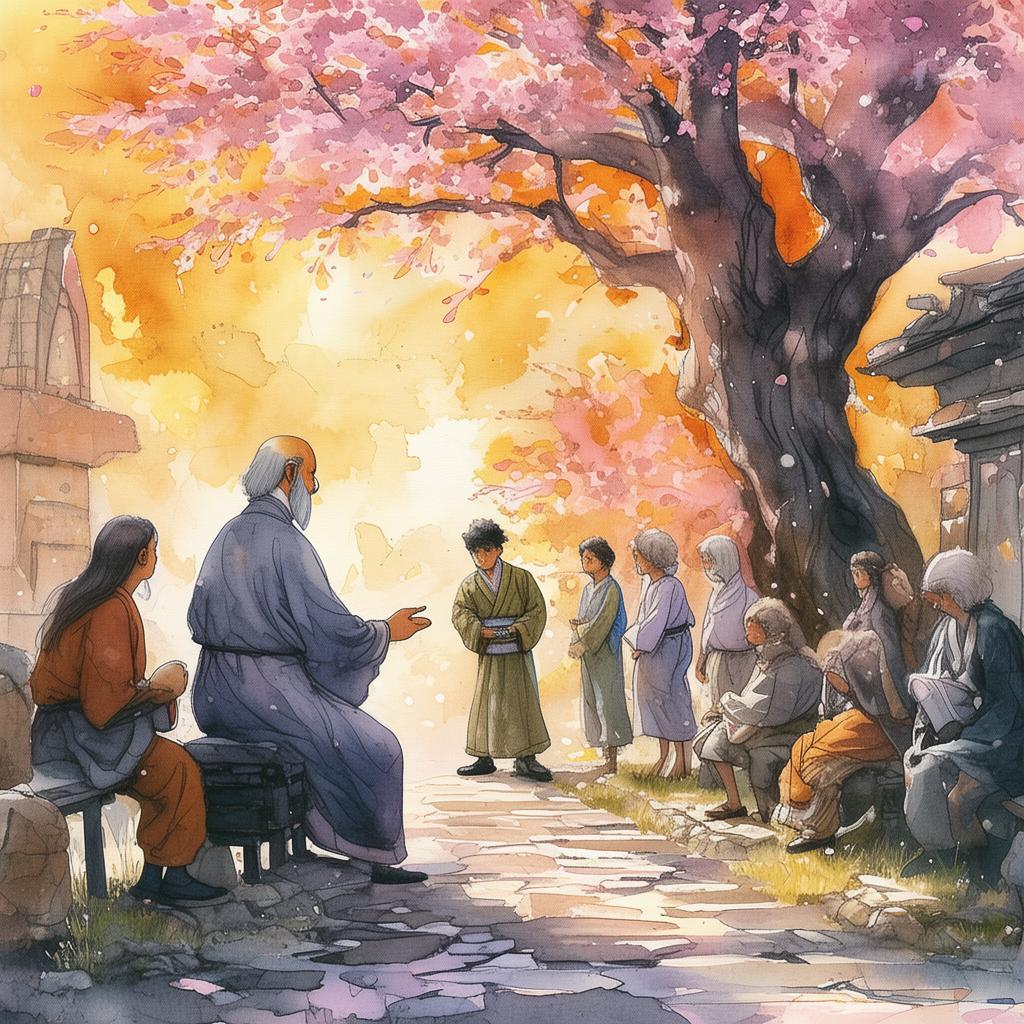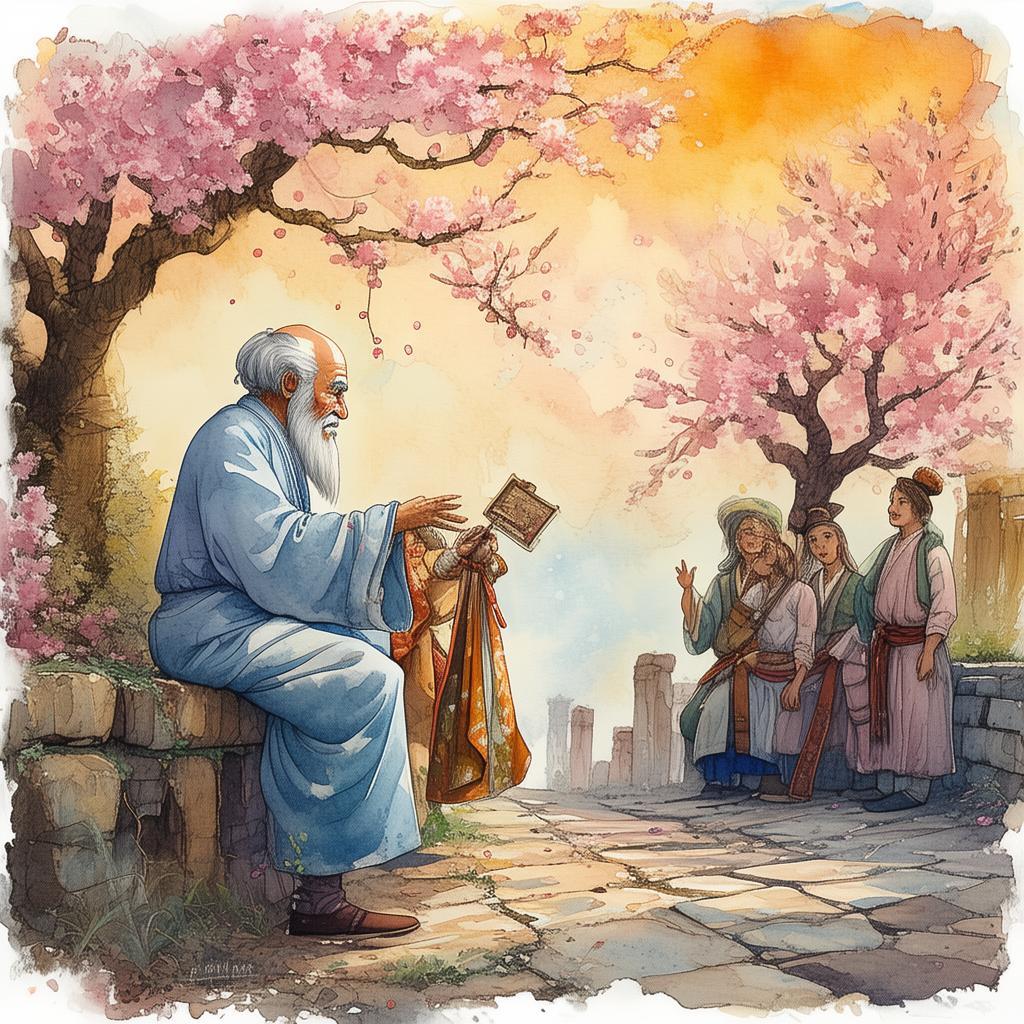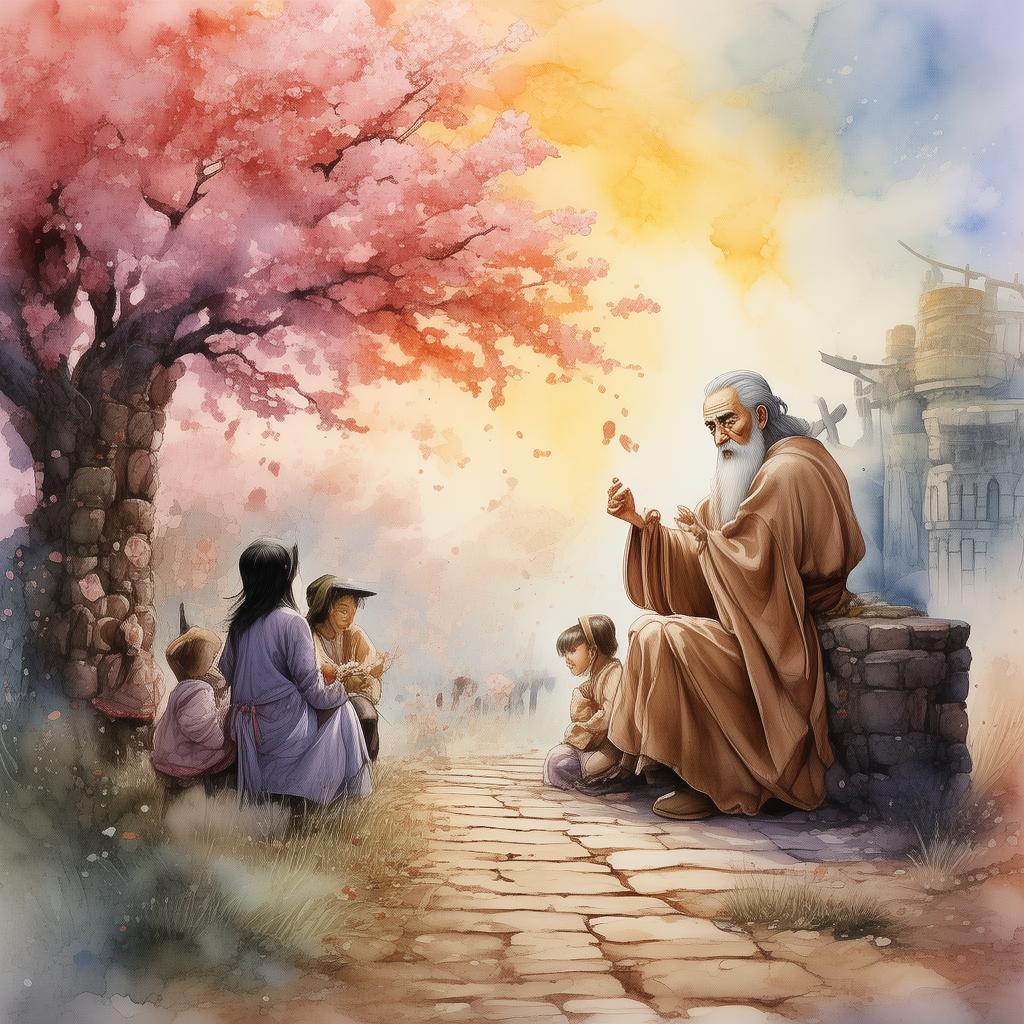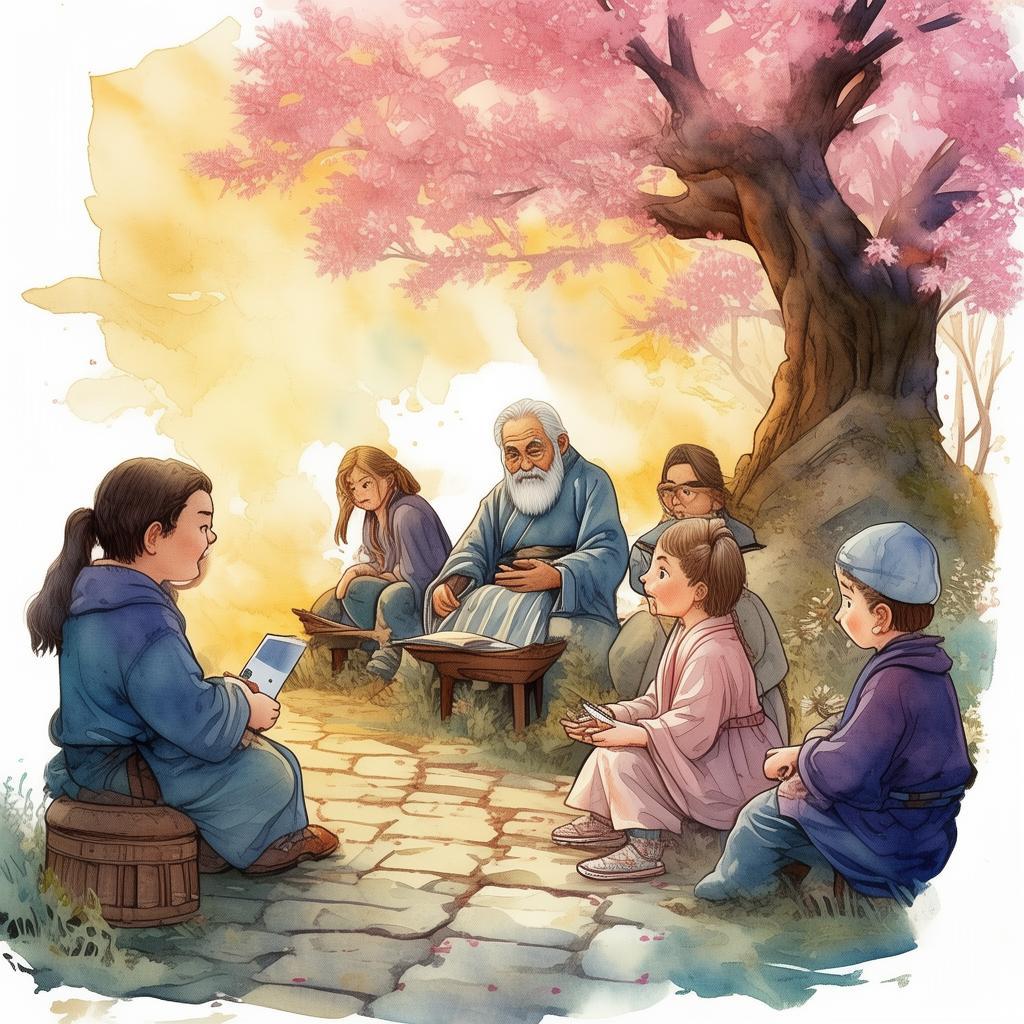The Labyrinth of the Three Character Lore
In the heart of the ancient kingdom of Qin, there lay an enigmatic labyrinth known as the "Path of the Three Characters," a place said to be the repository of ancient wisdom and moral truths. The Three Character Lore was a collection of teachings, woven into a tapestry of symbols, that promised insight into the very essence of the universe. For those who could decipher its mysteries, the lore held the power to shape the future of the kingdom and its people.
Amidst the tales of the labyrinth's dangers and wonders, there was a legend that a young scholar named Feng was destined to be the one to unlock its secrets. Feng, with his sharp intellect and unyielding spirit, set out on a journey to prove his worth. The kingdom's leaders, seeing the potential of the young man, bestowed upon him the task of deciphering the lore and returning with the knowledge that would save their land from an impending darkness.
The Path of the Three Characters was a maze of shifting walls and illusions, a place where one could easily become lost, not just in space, but in the labyrinth of one's own mind. Feng, equipped with a scroll of the lore's first riddle, ventured into the depths of the labyrinth. As he entered, he found the path ahead of him was a series of intricate carvings depicting characters from the lore, each with a moral lesson to impart.
The first character, "Ren," stood for benevolence. Feng, reflecting on the teachings, pondered the nature of kindness and compassion. He encountered a figure in need, but instead of helping, he was tempted to test his own beliefs by leaving the person to face their fate alone. The moral riddle was clear: could he truly practice benevolence by doing nothing?
The next character, "Yi," represented righteousness. Feng faced a choice between following the law and sparing the life of an innocent man. The law was clear, but his heart was torn. He realized that righteousness was not merely about adhering to rules but also about doing what was just and fair, even if it went against convention.
Finally, he came to the character "Zhi," which symbolized wisdom. Here, Feng was presented with a riddle that required him to balance his own desires with the greater good of the kingdom. The choice was between his own ambition and the needs of those he was sworn to protect. The labyrinth had led him to confront his own weaknesses and question his true intentions.
As Feng grappled with these moral dilemmas, he found himself in a room filled with mirrors, reflecting his own face and the faces of others who had come before him. Each reflection was a different version of himself, some kind, some just, some wise, but all with the same core question: who was he truly, and what would he choose?
With each reflection, he was reminded of the teachings of the Three Character Lore, and he began to see that the true power of the lore lay not in the symbols or the carvings, but in the journey itself. The labyrinth was a metaphor for the mind, and the characters were the trials by which one's character was tested.
In the end, Feng realized that the answers to the riddles were within himself. The labyrinth was a mirror, and the true challenge was to look into it and see the reflection of his own values and beliefs. With newfound clarity, he faced the final test, a riddle that would determine his fate and the fate of the kingdom.
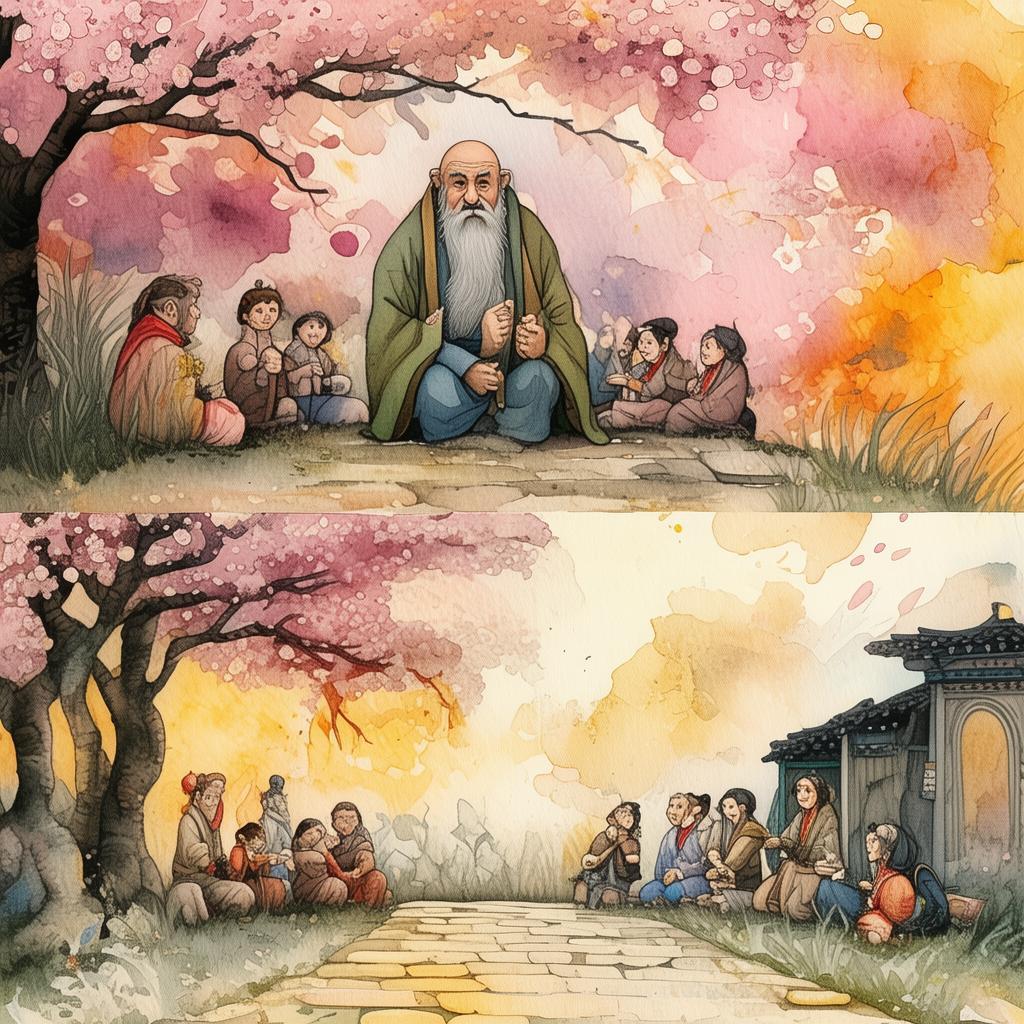
The riddle was this: "The kingdom is a garden, and you are the gardener. If a flower is blooming out of season, what do you do?" Feng, now wise beyond his years, understood that he must nurture all things, even if they were not as they should be. He chose to protect and care for the kingdom's future, no matter the cost.
As Feng emerged from the labyrinth, he was no longer a young scholar on a journey but a man transformed by the trials he had faced. He returned to the kingdom, not with knowledge to be imparted, but with the understanding that the greatest wisdom was the ability to face one's own heart and choose what was right, no matter the challenge.
The kingdom thrived, and Feng's legacy lived on, a testament to the power of self-reflection and the wisdom of the Three Character Lore. The Path of the Three Characters remained a place of wonder and mystery, a labyrinth that could still be navigated by those brave enough to face their own moral dilemmas.
✨ Original Statement ✨
All articles published on this website (including but not limited to text, images, videos, and other content) are original or authorized for reposting and are protected by relevant laws. Without the explicit written permission of this website, no individual or organization may copy, modify, repost, or use the content for commercial purposes.
If you need to quote or cooperate, please contact this site for authorization. We reserve the right to pursue legal responsibility for any unauthorized use.
Hereby declared.
